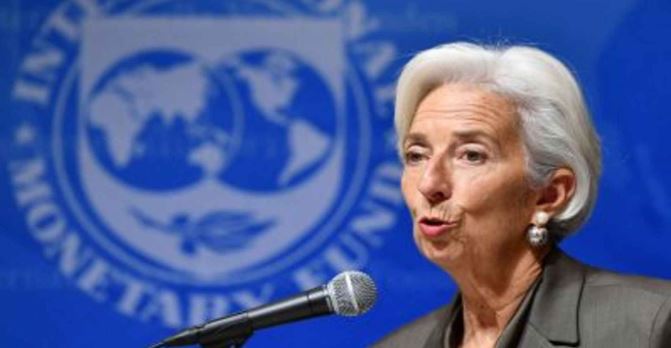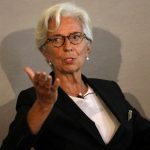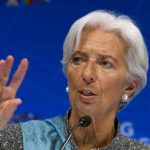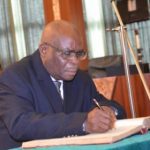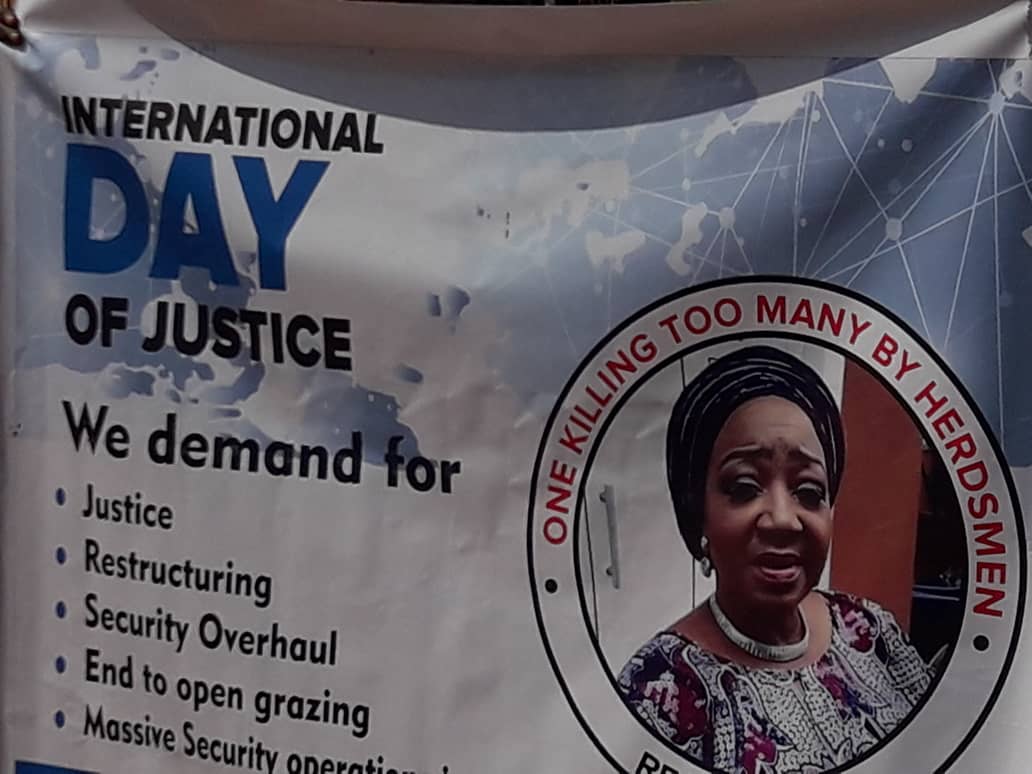International Monetary Fund chief Christine Lagarde submitted her resignation from the global crisis lender on Tuesday, citing more clarity about her nomination to lead the European Central Bank as European legislators approved a new top bureaucrat.
Lagarde said in a statement her resignation was effective Sept. 12, firing the starting gun for the IMF’s search for her successor, which is likely to be another European.
“With greater clarity now on the process for my nomination as ECB President and the time it will take, I have made this decision in the best interest of the Fund,” Lagarde said in a statement.
She said her resignation would expedite the selection for the next head of the IMF.
IMF succession is expected to be a major topic of discussion among G7 finance ministers and central bank governors meeting on Wednesday and Thursday in Chantilly, France, near Paris amid concerns that slowing global growth and trade conflicts will pressure vulnerable economies.
Lagarde’s resignation, first reported by Reuters, came two weeks after her nomination on July 2 for the ECB’s top job. She did not immediately quit the IMF because of uncertainty over whether the new European Parliament would support her and other new EU leadership positions.
Her nomination was part of a package of top officials agreed by EU governments that included German Defense Minister Ursula von der Leyen as European Commission president, who drew Green party opposition.
International Monetary Fund chief Christine Lagarde submitted her resignation from the global crisis lender on Tuesday, citing more clarity about her nomination to lead the European Central Bank as European legislators approved a new top bureaucrat.
Lagarde said in a statement her resignation was effective Sept. 12, firing the starting gun for the IMF’s search for her successor, which is likely to be another European.
“With greater clarity now on the process for my nomination as ECB President and the time it will take, I have made this decision in the best interest of the Fund,” Lagarde said in a statement.
She said her resignation would expedite the selection for the next head of the IMF.
IMF succession is expected to be a major topic of discussion among G7 finance ministers and central bank governors meeting on Wednesday and Thursday in Chantilly, France, near Paris amid concerns that slowing global growth and trade conflicts will pressure vulnerable economies.
Lagarde’s resignation, first reported by Reuters, came two weeks after her nomination on July 2 for the ECB’s top job. She did not immediately quit the IMF because of uncertainty over whether the new European Parliament would support her and other new EU leadership positions.
Her nomination was part of a package of top officials agreed by EU governments that included German Defense Minister Ursula von der Leyen as European Commission president, who drew Green party opposition.
International Monetary Fund chief Christine Lagarde submitted her resignation from the global crisis lender on Tuesday, citing more clarity about her nomination to lead the European Central Bank as European legislators approved a new top bureaucrat.
Lagarde said in a statement her resignation was effective Sept. 12, firing the starting gun for the IMF’s search for her successor, which is likely to be another European.
“With greater clarity now on the process for my nomination as ECB President and the time it will take, I have made this decision in the best interest of the Fund,” Lagarde said in a statement.
She said her resignation would expedite the selection for the next head of the IMF.
IMF succession is expected to be a major topic of discussion among G7 finance ministers and central bank governors meeting on Wednesday and Thursday in Chantilly, France, near Paris amid concerns that slowing global growth and trade conflicts will pressure vulnerable economies.
Lagarde’s resignation, first reported by Reuters, came two weeks after her nomination on July 2 for the ECB’s top job. She did not immediately quit the IMF because of uncertainty over whether the new European Parliament would support her and other new EU leadership positions.
Her nomination was part of a package of top officials agreed by EU governments that included German Defense Minister Ursula von der Leyen as European Commission president, who drew Green party opposition.
International Monetary Fund chief Christine Lagarde submitted her resignation from the global crisis lender on Tuesday, citing more clarity about her nomination to lead the European Central Bank as European legislators approved a new top bureaucrat.
Lagarde said in a statement her resignation was effective Sept. 12, firing the starting gun for the IMF’s search for her successor, which is likely to be another European.
“With greater clarity now on the process for my nomination as ECB President and the time it will take, I have made this decision in the best interest of the Fund,” Lagarde said in a statement.
She said her resignation would expedite the selection for the next head of the IMF.
IMF succession is expected to be a major topic of discussion among G7 finance ministers and central bank governors meeting on Wednesday and Thursday in Chantilly, France, near Paris amid concerns that slowing global growth and trade conflicts will pressure vulnerable economies.
Lagarde’s resignation, first reported by Reuters, came two weeks after her nomination on July 2 for the ECB’s top job. She did not immediately quit the IMF because of uncertainty over whether the new European Parliament would support her and other new EU leadership positions.
Her nomination was part of a package of top officials agreed by EU governments that included German Defense Minister Ursula von der Leyen as European Commission president, who drew Green party opposition.
International Monetary Fund chief Christine Lagarde submitted her resignation from the global crisis lender on Tuesday, citing more clarity about her nomination to lead the European Central Bank as European legislators approved a new top bureaucrat.
Lagarde said in a statement her resignation was effective Sept. 12, firing the starting gun for the IMF’s search for her successor, which is likely to be another European.
“With greater clarity now on the process for my nomination as ECB President and the time it will take, I have made this decision in the best interest of the Fund,” Lagarde said in a statement.
She said her resignation would expedite the selection for the next head of the IMF.
IMF succession is expected to be a major topic of discussion among G7 finance ministers and central bank governors meeting on Wednesday and Thursday in Chantilly, France, near Paris amid concerns that slowing global growth and trade conflicts will pressure vulnerable economies.
Lagarde’s resignation, first reported by Reuters, came two weeks after her nomination on July 2 for the ECB’s top job. She did not immediately quit the IMF because of uncertainty over whether the new European Parliament would support her and other new EU leadership positions.
Her nomination was part of a package of top officials agreed by EU governments that included German Defense Minister Ursula von der Leyen as European Commission president, who drew Green party opposition.
International Monetary Fund chief Christine Lagarde submitted her resignation from the global crisis lender on Tuesday, citing more clarity about her nomination to lead the European Central Bank as European legislators approved a new top bureaucrat.
Lagarde said in a statement her resignation was effective Sept. 12, firing the starting gun for the IMF’s search for her successor, which is likely to be another European.
“With greater clarity now on the process for my nomination as ECB President and the time it will take, I have made this decision in the best interest of the Fund,” Lagarde said in a statement.
She said her resignation would expedite the selection for the next head of the IMF.
IMF succession is expected to be a major topic of discussion among G7 finance ministers and central bank governors meeting on Wednesday and Thursday in Chantilly, France, near Paris amid concerns that slowing global growth and trade conflicts will pressure vulnerable economies.
Lagarde’s resignation, first reported by Reuters, came two weeks after her nomination on July 2 for the ECB’s top job. She did not immediately quit the IMF because of uncertainty over whether the new European Parliament would support her and other new EU leadership positions.
Her nomination was part of a package of top officials agreed by EU governments that included German Defense Minister Ursula von der Leyen as European Commission president, who drew Green party opposition.
International Monetary Fund chief Christine Lagarde submitted her resignation from the global crisis lender on Tuesday, citing more clarity about her nomination to lead the European Central Bank as European legislators approved a new top bureaucrat.
Lagarde said in a statement her resignation was effective Sept. 12, firing the starting gun for the IMF’s search for her successor, which is likely to be another European.
“With greater clarity now on the process for my nomination as ECB President and the time it will take, I have made this decision in the best interest of the Fund,” Lagarde said in a statement.
She said her resignation would expedite the selection for the next head of the IMF.
IMF succession is expected to be a major topic of discussion among G7 finance ministers and central bank governors meeting on Wednesday and Thursday in Chantilly, France, near Paris amid concerns that slowing global growth and trade conflicts will pressure vulnerable economies.
Lagarde’s resignation, first reported by Reuters, came two weeks after her nomination on July 2 for the ECB’s top job. She did not immediately quit the IMF because of uncertainty over whether the new European Parliament would support her and other new EU leadership positions.
Her nomination was part of a package of top officials agreed by EU governments that included German Defense Minister Ursula von der Leyen as European Commission president, who drew Green party opposition.
International Monetary Fund chief Christine Lagarde submitted her resignation from the global crisis lender on Tuesday, citing more clarity about her nomination to lead the European Central Bank as European legislators approved a new top bureaucrat.
Lagarde said in a statement her resignation was effective Sept. 12, firing the starting gun for the IMF’s search for her successor, which is likely to be another European.
“With greater clarity now on the process for my nomination as ECB President and the time it will take, I have made this decision in the best interest of the Fund,” Lagarde said in a statement.
She said her resignation would expedite the selection for the next head of the IMF.
IMF succession is expected to be a major topic of discussion among G7 finance ministers and central bank governors meeting on Wednesday and Thursday in Chantilly, France, near Paris amid concerns that slowing global growth and trade conflicts will pressure vulnerable economies.
Lagarde’s resignation, first reported by Reuters, came two weeks after her nomination on July 2 for the ECB’s top job. She did not immediately quit the IMF because of uncertainty over whether the new European Parliament would support her and other new EU leadership positions.
Her nomination was part of a package of top officials agreed by EU governments that included German Defense Minister Ursula von der Leyen as European Commission president, who drew Green party opposition.

